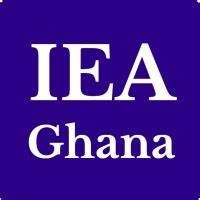IEA Announces Upcoming Presidential and Vice-Presidential Debates Ahead of 2024 General Elections

By [Newstive Media]
The Institute of Economic Affairs (IEA) has unveiled its plans to organize Presidential and Vice-Presidential Debates in the lead-up to Ghana’s 2024 General Elections. These debates aim to foster issue-based elections by providing a platform for candidates to discuss various aspects of the nation’s development process.
Purpose and Format of the Debates
Scheduled before the December 2024 elections, the debates will serve as policy dialogue engagements. Both Presidential and Vice-Presidential candidates will have the opportunity to present their viewpoints, plans, and programs. Additionally, they will critique the policies of their opponents and offer alternatives. The electorate will benefit from firsthand information on each candidate’s proposed programs and plans.
Thematic Areas and Public Participation
Moderators will pose questions based on public submissions covering thematic areas such as:
- Economy
- Governance
- Natural Resources
- Agriculture
- Education
- Health
- Labour
- Gender
- Children
- Youth
- Other Social Issues
Encouraging Candidate Participation
The IEA encourages all candidates to participate and use this platform to inform Ghanaians about their policies aimed at addressing the country’s challenges. By fostering informed voting decisions, these debates contribute to a more engaged electorate and a stronger democratic process.
The IEA and Its Legacy: Fostering Informed Democracy in Ghana
The Institute of Economic Affairs (IEA)
The Institute of Economic Affairs (IEA), established in 1989, stands as a beacon of intellectual rigor and policy advocacy in Ghana. As a non-partisan public policy institute, the IEA has played a pivotal role in shaping the country’s democratic processes and promoting informed decision-making.
Founding and Mission
The IEA emerged during a critical juncture in Ghana’s history. The country was transitioning from decades of military rule to a multi-party democracy. Recognizing the need for robust policy discussions and informed citizenry, a group of visionary individuals founded the IEA. Their mission was clear: to foster dialogue, research, and advocacy on economic, social, and governance issues.
Early Years and Impact
In its early years, the IEA focused on economic reforms, advocating for market-oriented policies, and engaging with policymakers, academics, and civil society. Its research publications, seminars, and conferences became essential platforms for discussing Ghana’s development challenges. The IEA’s commitment to evidence-based policy recommendations garnered respect across political divides.
Flagship Debates
One of the IEA’s most impactful initiatives has been the organization of Presidential and Vice-Presidential Debates. These debates serve as a critical forum for candidates to articulate their visions, policies, and plans. By bringing contenders face-to-face, the IEA ensures that Ghanaians receive firsthand information and can make informed choices at the polls.
The Role of Debates
The IEA’s debates transcend mere political theater. They delve into substantive issues, from the economy and governance to education and health. Candidates face tough questions posed by moderators, often based on public submissions. These debates have become a hallmark of Ghanaian elections, emphasizing issues over personalities.
IEA’s Influence
The IEA’s influence extends beyond election cycles. Its research reports, policy briefs, and seminars contribute to national discourse. Whether analyzing fiscal policies, advocating for education reforms, or addressing gender disparities, the IEA remains a trusted source of information for policymakers and citizens alike.
Challenges and Adaptation
Over the years, the IEA has navigated challenges. Funding constraints, political tensions, and evolving communication landscapes have required adaptability. Yet, the IEA persists, leveraging technology, collaborating with international partners, and engaging youth to remain relevant.
Looking Ahead
As Ghana faces new economic and social realities, the IEA continues to evolve. Its commitment to evidence-based research, policy advocacy, and democratic values remains unwavering. The upcoming 2024 debates promise to be a platform for robust discussions, shaping Ghana’s future.
Conclusion
The IEA’s legacy is etched in Ghana’s democratic journey. It reminds us that informed citizens are the bedrock of a thriving democracy. As we anticipate the debates, let us appreciate the IEA’s tireless efforts and its role in building a stronger, more accountable Ghana.



0 Comments
No comments yet, be the first to comment